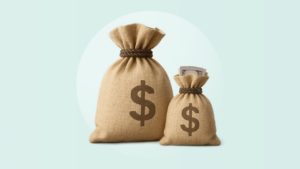Home equity news: Chase’s HELOC comeback and the rise of the equity rich

The top stories in home equity, mortgages and real estate
Interest rates roundup
The $30,000 home equity loan held steady at 8.22 percent, its lowest level this year, according to Bankrate’s national survey of lenders. Meanwhile, the average rate on a $30,000 home equity line of credit (HELOC) soared to 8.90 percent, as a large lender ended its introductory offers.
The 30-year fixed-rate loan dropped this week to 6.54 percent, its lowest point in almost a year, amid speculation the Federal Reserve will cut interest rates at its September meeting, according to Bankrate’s latest national lender survey.
A big bank locks in on HELOCs
Like many lenders, Chase stopped offering home equity lines of credit five years ago, as the pandemic ramped up. But now the big bank is back, hoping to cash in on the growing numbers of folks seeking to tap their home’s value. How does its new HELOC compare to others in the field?
Turn your home equity into your next home
You may not realize it, but if you’ve got some home equity built up, you might be able to use it to help buy a second place. Using a home equity loan or HELOC can give you extra cash for a bigger down payment or even to buy home number two outright. However, the strategy is not without its risks.…
The key number to affording a home
When trying to swing a home purchase, what matters more: mortgage rates or listing prices? The answer might surprise you — but hear our arguments for why you should watch interest rates over discounted price tags.
What to do if your HELOC’s got a new home
Occasionally, home equity lenders just stop lending, which can feel a bit unsettling if it happens to you. The good news is, it won’t affect your home equity loan or HELOC — much. But it may mean a few changes, like who services your account or where you send payments.
Take the mortgage, keep your investments
With mortgage rates still elevated, some homebuyers are tempted to pay cash to pay those record-high home prices, selling off stocks and other investments to do so. Not a good move, our experts say. Read why they usually suggest keeping your portfolio intact and borrowing instead.
Home is where the equity is
Home values have climbed so much that almost half of U.S. homeowners with mortgages are now “equity rich,” meaning they owe less than half of what their home is worth. That can give them more financial flexibility, like easier access to loans and better borrowing terms, but it’s not all free money.
Source: ATTOM Data Solutions
In case you missed it
Technically, these stories were released in the previous weeks, but they’re still worth highlighting.
Where to score the best home equity loan
If you’re thinking about tapping your home’s equity, there are more options today: You can go to big banks, credit unions, mortgage lenders, or even online-only lenders. Each type of lender offers its own perks — and drawbacks. Here’s how to compare them.
Affordable homes are harder to find and fix
Finding the funds to buy a home is tough, especially if it’s your first time around. But if you think that turning to a fixer-upper or rehabbing a foreclosed property would help save money, think again. Our expert contributor Rick Sharga explains how rising labor and material costs can actually make that bargain buy backfire.

Unlock your home’s value
Achieve your financial goals with predictable payments on a lump-sum home equity loan.
Explore offersWhy we ask for feedback Your feedback helps us improve our content and services. It takes less than a minute to complete.
Your responses are anonymous and will only be used for improving our website.






